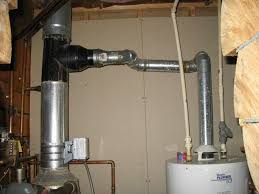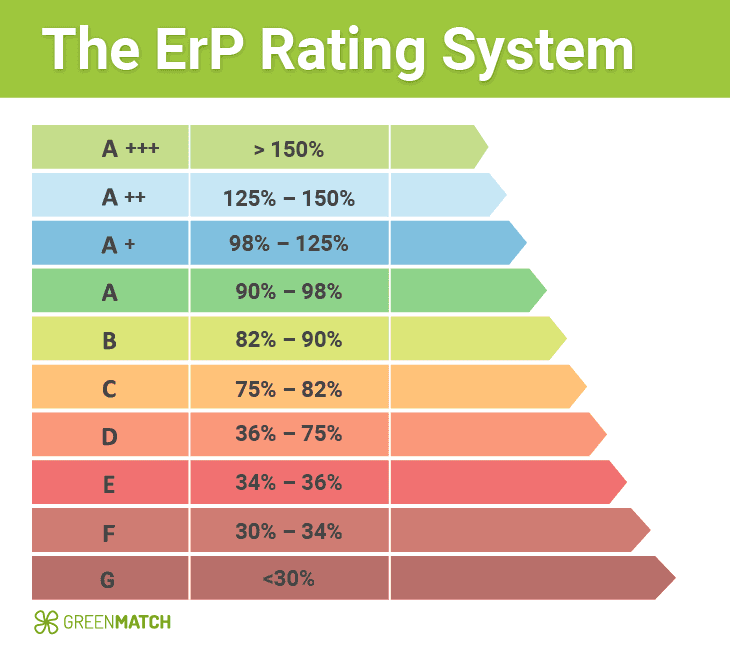Boiler Maintance
When it comes to ensuring your boiler operates efficiently, the first step is to check for proper functionality. You should start by examining the boiler's control panel. Look for any warning lights or error codes that may indicate a malfunction.
When it comes to ensuring your boiler operates efficiently, the first step is to check for proper functionality. You should start by examining the boiler's control panel. Look for any warning lights or error codes that may indicate a malfunction.
If you notice anything unusual, it’s essential to consult the user manual or contact a professional for guidance. A well-functioning boiler should respond promptly to your commands, whether you’re adjusting the temperature or switching it on and off. Next, listen carefully to the sounds your boiler makes during operation.
A properly functioning boiler should produce a consistent hum or gentle whirring noise. If you hear banging, clanging, or gurgling sounds, it could be a sign of underlying issues such as air trapped in the system or sediment build-up. These noises can indicate that your boiler is struggling to operate efficiently, which may lead to more significant problems down the line.
By taking the time to check for proper functionality, you can catch potential issues early and save yourself from costly repairs.
Summary
Regularly check the boiler for proper functionality to ensure it is working efficiently.
Assess the energy efficiency of the boiler to save on energy costs and reduce environmental impact.
Inspect for leaks or corrosion to prevent potential damage and ensure the longevity of the boiler.
Verify safety measures such as carbon monoxide detectors and pressure relief valves to protect against hazards.
Review gas pressure and ventilation to ensure proper combustion and air quality.
Assessing Energy Efficiency
Energy efficiency is a crucial aspect of boiler maintenance that you should not overlook. An efficient boiler not only saves you money on energy bills but also reduces your carbon footprint. To assess your boiler's energy efficiency, start by checking its energy rating label.
Modern boilers typically come with an A-rated label, indicating they are highly efficient. If your boiler is older and has a lower rating, it may be time to consider an upgrade. You can also evaluate energy efficiency by monitoring your heating bills over time.
If you notice a sudden spike in costs without any changes in usage, it could signal that your boiler is working harder than necessary. Additionally, consider having a professional perform an energy audit of your home. They can identify areas where heat may be escaping and recommend improvements, such as better insulation or draught-proofing, which can enhance your boiler's efficiency even further.
Inspecting for Leaks or Corrosion

Inspecting for leaks or corrosion is vital in maintaining the integrity of your boiler system. Start by visually examining the exterior of the boiler for any signs of water pooling or damp patches. Even small leaks can lead to significant issues if left unaddressed, including water damage and increased energy costs.
If you find any leaks, it’s crucial to turn off the boiler and seek professional assistance immediately. Corrosion is another concern that can compromise your boiler's performance. Check for rust or discoloration on the metal components of the boiler, particularly around joints and fittings.
Corrosion can weaken the structure of your boiler and lead to leaks or even complete failure. If you notice any signs of corrosion, it’s advisable to have a qualified technician assess the situation and recommend necessary repairs or replacements.
Verifying Safety Measures
Safety should always be a top priority when dealing with boilers. Begin by verifying that all safety measures are in place and functioning correctly. Check that the pressure relief valve is operational; this valve is designed to release excess pressure from the system to prevent dangerous situations.
You can test it by gently lifting the lever and ensuring that water flows out smoothly before sealing it back. Additionally, ensure that your carbon monoxide detector is installed and functioning properly. This device is crucial for alerting you to any dangerous gas leaks that may occur due to a malfunctioning boiler.

Regularly test the detector and replace its batteries as needed. By taking these safety precautions seriously, you can protect yourself and your family from potential hazards associated with boiler operation.
Reviewing Gas Pressure and Ventilation
Reviewing gas pressure and ventilation is essential for maintaining a safe and efficient boiler system. Start by checking the gas pressure using a manometer; this tool will help you determine if the pressure is within the manufacturer's recommended range. If the pressure is too low or too high, it can affect your boiler's performance and efficiency.

In such cases, it's best to consult a qualified gas engineer who can make the necessary adjustments. Ventilation is equally important for safe boiler operation. Ensure that there is adequate airflow around your boiler, as restricted ventilation can lead to overheating and potential hazards.
Check that air vents are clear of obstructions and that there are no blockages in flues or chimneys. Proper ventilation not only enhances safety but also improves efficiency, allowing your boiler to operate at its best.

Importance of Regular Boiler Maintenance
The internal components of your boiler play a significant role in its overall performance and longevity. To evaluate their condition, consider scheduling regular maintenance checks with a qualified technician who can perform a thorough inspection. They will examine critical components such as heat exchangers, burners, and pumps for signs of wear or damage.
Identifying Potential Issues
During these inspections, pay attention to any unusual smells or sounds coming from the boiler, as they may indicate internal issues that require immediate attention.
It is essential to address these problems promptly to prevent further damage.
Benefits of Regular Maintenance
Regular maintenance not only helps identify potential problems early but also ensures that your boiler operates efficiently throughout its lifespan. By investing in regular checks, you can help extend the life of your boiler and avoid costly repairs.
Ensuring Boiler Efficiency
By keeping your boiler well-maintained, you can enjoy a warm and comfortable home while also reducing your energy bills.
A well-maintained boiler is more efficient, which means it uses less energy to heat your home, resulting in lower fuel costs and a reduced carbon footprint.

Ensuring Proper Boiler Settings
Ensuring that your boiler settings are correctly configured is essential for optimal performance. Start by checking the thermostat settings; they should be set according to your comfort preferences while also considering energy efficiency. If you find that your home is consistently too hot or too cold, it may be time to recalibrate the thermostat or consult a professional for assistance.
Additionally, review other settings such as timer functions and temperature limits. Many modern boilers come equipped with smart technology that allows you to programme heating schedules based on your lifestyle. By taking advantage of these features, you can maximise efficiency and reduce energy consumption while ensuring your home remains comfortable.
Confirming Adequate Heating and Hot Water Output
Finally, confirming adequate heating and hot water output is crucial for ensuring your boiler meets your household needs. Start by testing the radiators in your home; they should heat up evenly and quickly when the system is activated. If you notice any cold spots or inconsistent heating, it may indicate air trapped in the system or issues with circulation.
For hot water output, turn on taps in various locations throughout your home to ensure that hot water flows consistently without long delays. If you experience fluctuations in temperature or pressure, it could signal problems within the boiler itself or issues with plumbing connections. Addressing these concerns promptly will help maintain comfort in your home while preventing further complications.
By following these steps and utilising resources like aidiy.co.uk, you can effectively troubleshoot common boiler issues and save money on repairs while ensuring a safe and efficient heating system in your home. Regular maintenance and vigilance will go a long way in prolonging the life of your boiler and keeping your household comfortable year-round.
FAQs

What is a boiler service?
A boiler service is a thorough inspection and maintenance of a boiler by a qualified engineer to ensure it is working safely and efficiently.
Why is it important to get a boiler service?
Regular boiler servicing is important to ensure the safety of the boiler, identify any potential issues, and maintain its efficiency, ultimately extending its lifespan.
How often should I get my boiler serviced?
It is recommended to have your boiler serviced annually to ensure it is in good working condition.
What should be included in a good boiler service?
A good boiler service should include a thorough inspection of the boiler, cleaning of components, checking for leaks, testing the efficiency, and ensuring it meets safety standards.
How can I tell if I got a good boiler service?
You can tell if you got a good boiler service if the engineer conducts a thorough inspection, provides a detailed report of the service, addresses any issues found, and ensures the boiler is working efficiently and safely.
References
What to Look for in a Good Boiler Service - Which? This link provides a comprehensive checklist of what to expect from a good boiler service. It covers key points like gas safety checks, pressure tests, and cleaning. https://www.which.co.uk/reviews/boilers/article/boiler-maintenance/getting-the-best-boiler-service-a9h945b2brSV
How to Tell If Your Boiler Has Been Serviced Properly - HomeServe This guide offers practical tips on how to verify if your boiler has been serviced correctly. It highlights the importance of checking for a service certificate and examining the boiler for signs of cleaning. https://www.graysfuels.co.uk/blog/signs-your-boiler-needs-serviced
Boiler Service Checklist: What to Expect from an Engineer - Boiler Guide This resource provides a detailed checklist of what a boiler engineer should do during a service. It includes items like checking gas tightness, inspecting the heat exchanger, and testing the thermostat. https://idealheating.com/blog/ideal-boiler-service-checklist






